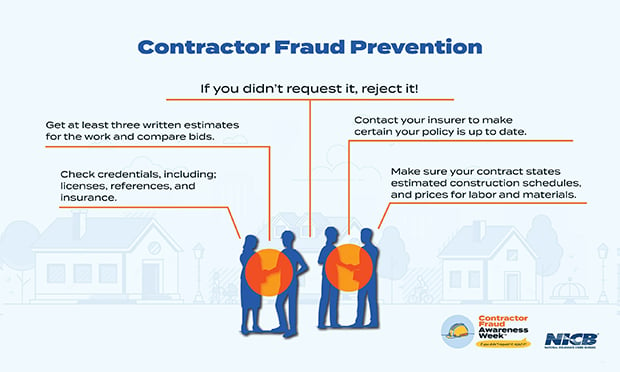 As part of its Contractor Fraud Awareness Week, the National Insurance Crime Bureau is offering tips to help policyholders spot and avoid dishonest contractors. (Credit: National Insurance Crime Bureau)
As part of its Contractor Fraud Awareness Week, the National Insurance Crime Bureau is offering tips to help policyholders spot and avoid dishonest contractors. (Credit: National Insurance Crime Bureau)
Dishonest contractors preying on homeowners in the wake of a disaster can account for as much as 10% of annual natural catastrophe losses paid by the U.S. insurance industry, according to the National Insurance Crime Bureau (NICB), which is highlighting the stat as part of annual Contractor Fraud Awareness Week (May 22-May 26, 2023).
Recommended For You
Want to continue reading?
Become a Free PropertyCasualty360 Digital Reader
Your access to unlimited PropertyCasualty360 content isn’t changing.
Once you are an ALM digital member, you’ll receive:
- Breaking insurance news and analysis, on-site and via our newsletters and custom alerts
- Weekly Insurance Speak podcast featuring exclusive interviews with industry leaders
- Educational webcasts, white papers, and ebooks from industry thought leaders
- Critical converage of the employee benefits and financial advisory markets on our other ALM sites, BenefitsPRO and ThinkAdvisor
Already have an account? Sign In Now
© Touchpoint Markets, All Rights Reserved. Request academic re-use from www.copyright.com. All other uses, submit a request to [email protected]. For more inforrmation visit Asset & Logo Licensing.







